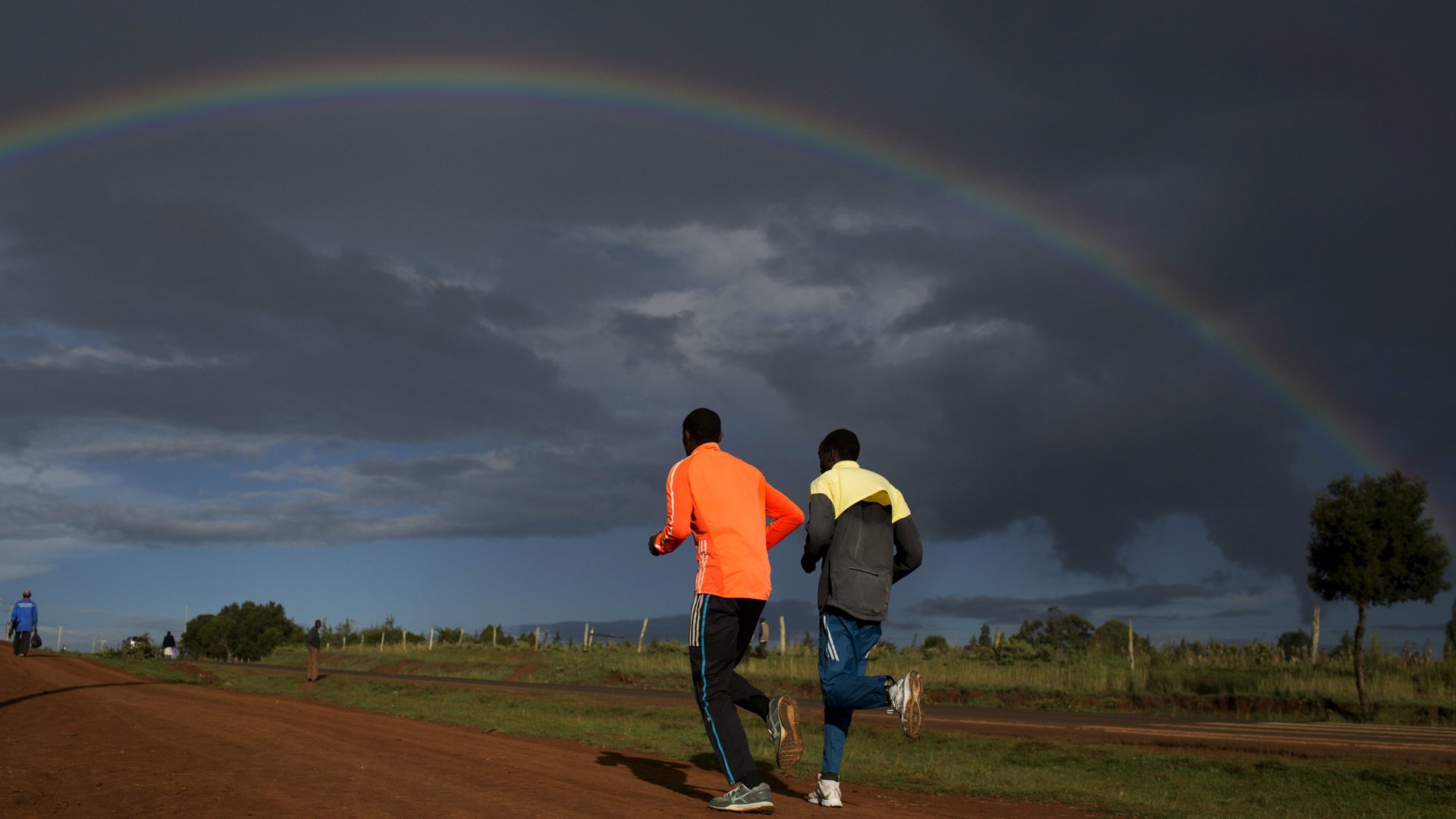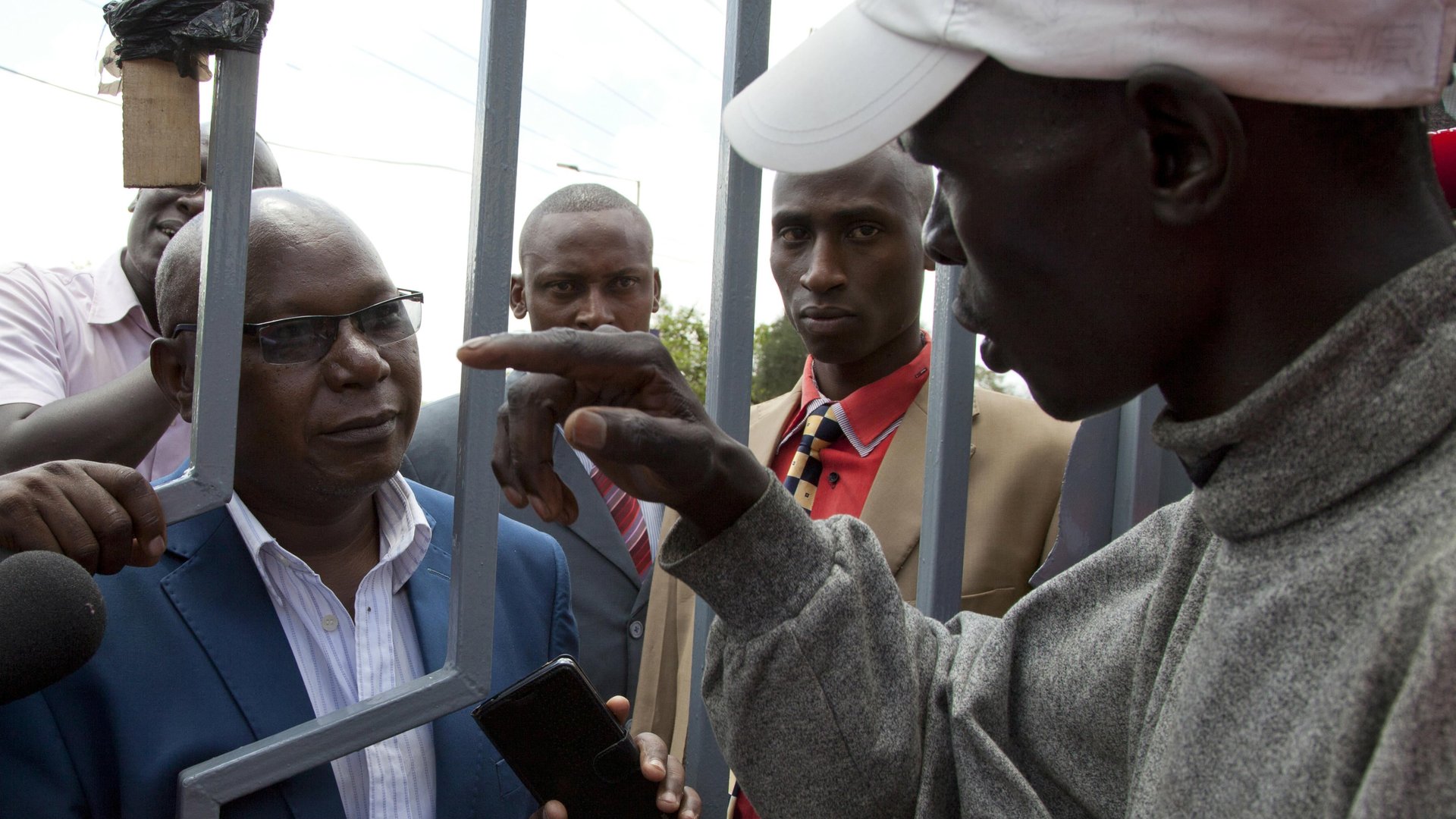Kenya’s elite athletes run for more than glory so are standing up to a negligent sports body
For two days this week some of Kenya’s elite runners blockaded Athletics Kenya’s headquarters in Nairobi to demand the resignation of the organization’s leadership, charging that corruption and their slow response to doping accusations is jeopardizing runners’ careers.


For two days this week some of Kenya’s elite runners blockaded Athletics Kenya’s headquarters in Nairobi to demand the resignation of the organization’s leadership, charging that corruption and their slow response to doping accusations is jeopardizing runners’ careers.
Russia’s recent ban from international athletics, coupled with corruption allegations lodged against Kenya’s own athletic leadership, has runners here fearful they’ll be sidelined too.
The action forced president Isaiah Kiplagat and vice president David Okeyo to step aside pending an investigation into corruption allegations against them—a victory for the increasingly frustrated elite athletes who feel their livelihoods are being toyed with.
“The federation they don’t take any action, they are not working on anything,” elite runner Elias Kiptum, who won both the Frankfurt and Linz Marathons twice each, told Quartz. “The athletes are thinking we might be punished because of the negligence of officials.”

For them, a ban on Kenya’s participation in international competitions is about far more than the end of running glory and the millions of dollars in sponsorship backing.
The rhythm of life in the Rift Valley, particularly the running hubs of Eldoret and Iten, is dictated by the sport, even for those who have never laced up a pair of sneakers.
In Iten, dubbed the “city of champions,” dirt tracks run the length of the main road and athletes pound the ground in packs all day long. Schoolchildren are used to long-legged, lean men and women zipping by as they trudge to school.
Many of these athletes come from the most humble of backgrounds. Fifty seven percent of Elgeyo Marakwet County’s residents live below the poverty line. Opportunities are few.
The prize money that the elite bring home from big-name marathons goes a long way here. Much of it is parsed out to family and friends to cover school fees, housing, medical care.
When Kiptum won the Linz (Austria) Marathon in 2012, he took home about 10,000 euros. With that, he built a simple, one-story home in central Iten that he lives in with his wife and two children. Another $1,000 goes each year toward his three sisters’ school fees. That same dynamic is repeated from family to family.
Runners who make it really big reinvest in the broader community, sponsoring scholarships for local school children and contributing to social services. Wesley Korir, winner of the 2012 Boston marathon, a local parliamentarian, and one of the leaders of this week’s protest, has financed a high school education for scores of local students, built a local library, paid teacher salaries to reduce school fees, and established a running academy for high school students through his NGO Kenyan Kids Foundation.
The county also rakes in tourism dollars from foreign athletes who come to train in Iten’s crisp high-altitude air.
A ban on Kenya’s participation in international running events would wipe out an entrenched network of support. Having some of their demands met on Tuesday is the first step toward making sure that doesn’t happen.
“When athletes raise their issues, for the past few years, people have not been very keen to listen to athletes. We are really urging the government to come in, in full control, to facilitate these talks, that what we have agreed should really be put into action,” said Wilson Kipsang, winner of the 2014 London and New York Marathons and the unofficial leader of Kenya’s elites. “The standoff is over now. We are going back to training.”